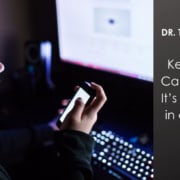Coronavirus Patients May Still Be Contagious After Symptoms Disappear
Symptoms from a mild case of Covid-19 could be gone, but researchers now warn you may need to extend your quarantine for another two weeks.
Why? Studies keep zeroing in on more details of this complex virus. In a new report, researchers say they found that half of the patients they treated for mild Covid-19 infection still had coronavirus for up to eight days after symptoms disappeared. The research letter was published online in the American Thoracic Society’s American Journal of Respiratory and Critical Care Medicine.
Of course, details like this are “moving targets” projected in this field every day. Advice on the length of time from exposure to symptoms changes, the variety of ways the virus can be shared shifts, the list of key symptoms expands, and the length of time a person could still be contagious changes based on differing factors. This study is shared as a cautionary report.
Researchers collected samples from throat swabs taken from 16 patients on alternate days and analyzed them. Patients were discharged after their recovery and confirmation of negative viral status.
“The most significant finding from our study is that half of the patients kept shedding the virus even after resolution of their symptoms,” said co-lead author Dr. Sharma, instructor of medicine, Section of Pulmonary, Critical Care & Sleep Medicine, Yale School of Medicine. “More severe infections may have even longer shedding times.”
The primary symptoms in these patients included fever, cough, pain in the pharynx (pharyngalgia) and difficult or labored breathing (dyspnea). Patients were treated with a range of medications.
“If you had mild respiratory symptoms from Covid-19 and were staying at home so as not to infect people, extend your quarantine for another two weeks after recovery to ensure that you don’t infect other people,” recommended corresponding author Lixin Xie, MD
The authors had a special message for the medical community: “Covid-19 patients can be infectious even after their symptomatic recovery, so treat the asymptomatic/recently recovered patients as carefully as symptomatic patients.”
Newsweek reported:
The authors of the study believe the virus may be so contagious because of its ability to spread in patients who are not showing symptoms. They cite reports of recovered Covid-19 patients infecting those in close contact with them. “This warrants us to investigate the ‘shedding window’ after the clinical recovery of the patient,” they wrote.
The researchers emphasized that all of these patients had milder infections and recovered from the disease, and that the study looked at a small number of patients. They noted that it is unclear whether similar results would hold true for more vulnerable patients such as the elderly, those with suppressed immune systems and patients on immunosuppressive therapies.
Source: American Thoracic Society. “Some Covid-19 patients still have coronavirus after symptoms disappear.” ScienceDaily, 27 March 2020.








